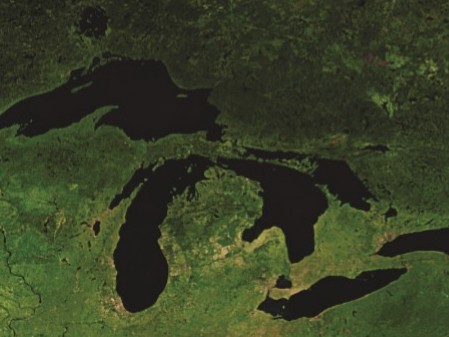Great Lakes Forum brings attention to Canadian water policies

 Water experts from the United States and Canada have been meeting in Toronto over the past three days to discuss Canadian water policies and the topic of the Great Lakes, their restoration and protection, just as political leaders and activist groups across the country are calling on provincial and federal governments to do more to protect what many view as Canada’s most important natural resource.
Water experts from the United States and Canada have been meeting in Toronto over the past three days to discuss Canadian water policies and the topic of the Great Lakes, their restoration and protection, just as political leaders and activist groups across the country are calling on provincial and federal governments to do more to protect what many view as Canada’s most important natural resource.
Convening every three years and hosted by the Canadian federal government’s Department of Environment and Climate Change and the U.S. Environmental Protection Agency, the Great Lakes Public Forum (PDF) brought political leaders and experts together from both countries to talk about the latest evidence concerning the health of the Great Lakes, one of the largest fresh water ecosystems on the planet and vital to the economy and livelihood of some 40 million people living within its drainage basin.
“Canada and the United States have a long history of collaboration in Great Lakes protection and we’ve come a long way in restoring and protecting this treasured, shared resource,” says Environment and Climate Change minister, Catherine McKenna, who was on hand for the event. “Yet we have further work to do. I’m impressed by the extensive public participation at the Great Lakes Public Forum and encouraged by what more we can accomplish together.
Cleaner Great Lakes mean better communities, better nations and better neighbours.”
This year’s forum showcased the launch of the Great Lakes Project, an arts and culture celebration of the Great Lakes which aims to “unleash the power of the Great Lakes to strengthen identity and inspire greatness in what we value and do as citizens.” Sparked by a series of roundtables hosted last year by Ontario’s Lieutenant Governor, the Honourable Elizabeth Dowdeswell, the project will support activities and events which speak to the connection between the Great Lakes and the people living within their watershed.
“The Great Lakes are equal to the Rockies or the Grand Canyon,” says campaign co-founder Douglas Wright. “Their very greatness makes them difficult to grasp. After all, you can’t see across them, but you can see them from outer space. They are sacred for Indigenous Peoples; indeed, the Anishinaabe call water ‘the lifeblood of Mother Earth’.”
Meanwhile, water activists across the country are becoming more and more vocal about the need for greater protection of Canada’s water resources. Recently, protests in southwestern Ontario erupted over Nestle corporation’s application to renew its permit to take up to 3.6 million litres a day from a site near the town of Guelph – at a price of just $3.71 per one million litres.
Provincial New Democrats and the Green Party leaders are now urging the Ontario Liberals to reconsider the province’s current water-taking permit program and to take time for more public input into the review process.
“The highest bidder still gets the water, and we’re not taking on that stewardship role and ensuring that we have sustainable access to water that will support our growth plans over the next generations,” said Ontario NDP leader Andrea Horwath.
On the federal front, social justice group, the Council of Canadians, is pushing for the federal government to establish a national water policy to protect the resource from exploitation and has recently called out the government for its foot-dragging on fixing broken water and wastewater systems on First Nations reserves.
The COC says that the government needs to follow up on the 2011 national assessment prepared by Aboriginal Affairs and Northern Development Canada which stated that an investment of $4.7 billion is needed over the next ten years to bring First Nations water and wastewater systems up to health standards.
“The Council of Canadians calls on the Trudeau government to increase its spending on First Nations drinking water and sanitation services, including an immediate infusion of $1.2 billion for high-risk systems, in its upcoming federal budget that is expected in March-April 2017,” says COC political director Brent Patterson.

